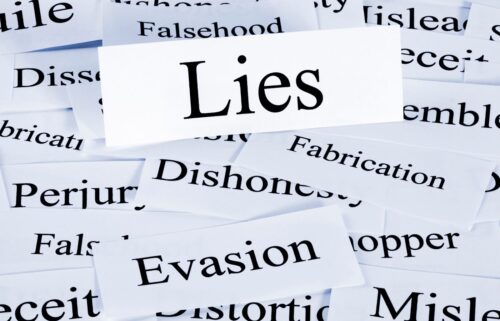Article • Dean Baker’s Beat the Press
Yes, the Media Lied About the Pre-Election Economy

Article • Dean Baker’s Beat the Press
Fact-based, data-driven research and analysis to advance democratic debate on vital issues shaping people’s lives.
Center for Economic and Policy Research
1611 Connecticut Ave. NW
Suite 400
Washington, DC 20009
Tel: 202-293-5380
Fax: 202-588-1356
https://cepr.net
The Economic Policy Institute (EPI) just posted new wage data for the full year of 2024. It shows that workers, especially those at the bottom of the wage distribution, had substantial real wage gains since the pandemic. Workers in the bottom decile had real wage gains of 15.3 percent over the five years from 2019 to 2024. Workers in the second quintile had gains of 11.4 percent.
There were real wage gains across the wage distribution, although they were less for higher wage workers. Just to be very clear, these are wage gains in excess of inflation. EPI subtracted out the increase in prices from wage growth.
These wage gains are extraordinary for two reasons. First, there were long periods over the last half-century where wages for lower and middle-wage workers did not keep pace with inflation. In the last five years, they not only kept pace, but hugely exceeded inflation.
The other reason is that we saw a worldwide pandemic in this period. The pandemic was a hit to growth across the world. The United States was virtually the only country where workers managed to achieve substantial wage gains despite the pandemic. The media told us “people blame Biden, not the pandemic,” but the pandemic happens to be the reality.
To be clear, it doesn’t make sense to say that someone who is making $16.50 an hour in 2024, compared to $15.00 an hour in 2019 (inflation adjusted) is doing great. But they clearly are doing better. And that seems like a big deal. And these people were reasonably satisfied with the economy in 2019.
These are the facts about wage growth, but we know that the economy was a big negative for Harris in the campaign last fall. In fact, she rarely talked about the administration’s extraordinary record on job growth and unemployment, wage growth, or even the record rate of business start-ups. (I’m sure that was on the advice of political consultants.)
As I’ve argued many times, a big factor was the media (the New York Times and Washington Post, I don’t mean Fox) had poisoned the well, continually highlighting or even inventing bad news about the economy. I’ve touted my “six favorite untruths” about the economy, but let me just briefly go through what they did.
On July 4th weekend last summer, the Times ran a major state of the economy story in which it told “a tale of two economies.” This piece highlighted an admittedly atypical low-paid worker to give the wrong impression that most lower paid workers were falling behind. Why would a paper do this?
Another Times piece told readers recent college grads couldn’t find jobs. This was at a time when the unemployment rate for recent college grads was near a 20-year low. The small grain of truth was that the 4.0 percent or so of recent grads who found themselves unemployed were having difficulty getting re-employed. However, that is hugely different from saying recent grads couldn’t get jobs, which the headline told readers.
The Washington Post had a major piece telling people that a record number (not share) of workers were working two full-time jobs. This presumed measure of economic hardship was also touted by a week later by the Marketplace radio program. A tiny bit of research would have revealed that the record share (about 0.2 percent of workers) for this number was hit in the summer of 2000, the peak of the 1990s boom. That might have suggested it was not a good measure of hardship.
The media also repeatedly had pieces about how young people were giving up on ever being able to own a home even when the ownership rates for young people were above pre-pandemic peaks. They also ran pieces on the “retirement crisis” when near retirees were better prepared for retirement than they had been in decades, possibly ever.
These are some of my highlights, but the point is the “bad economy” was a repeated theme of the media’s reporting throughout the Biden years. I don’t expect the media to tell people how to feel about the economy, we all know people hate inflation and everyone has heard the story that workers think they have “earned” their pay increases, while inflation is the government’s fault — but this doesn’t justify the media’s misrepresenting reality to tell a story that isn’t true.
Would more honest reporting have made a difference in the election? Who knows. It was a close election, anything could have made a difference. We know the MAGA hardcore will believe anything Trump tells them, but Trump was not elected by the MAGA hardcore.
We also know that most people don’t read the New York Times or Washington Post, but the idea that the news they print doesn’t have a broader impact is nonsense, even if it is convenient for those who don’t want to take responsibility for their reporting. The people who are influencers on TikTok don’t live in a completely separate world from the people who do follow news in the major media outlets.
Anyhow, this EPI piece just reminds us again how badly the media misrepresented the economy under Biden-Harris. And we should be very angry.